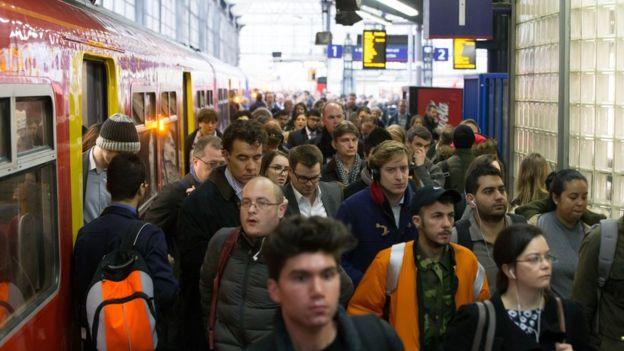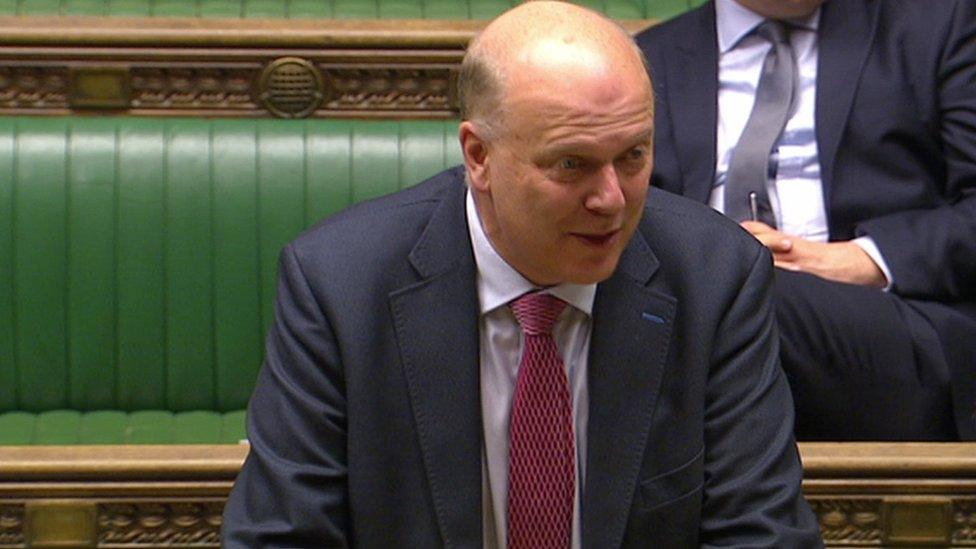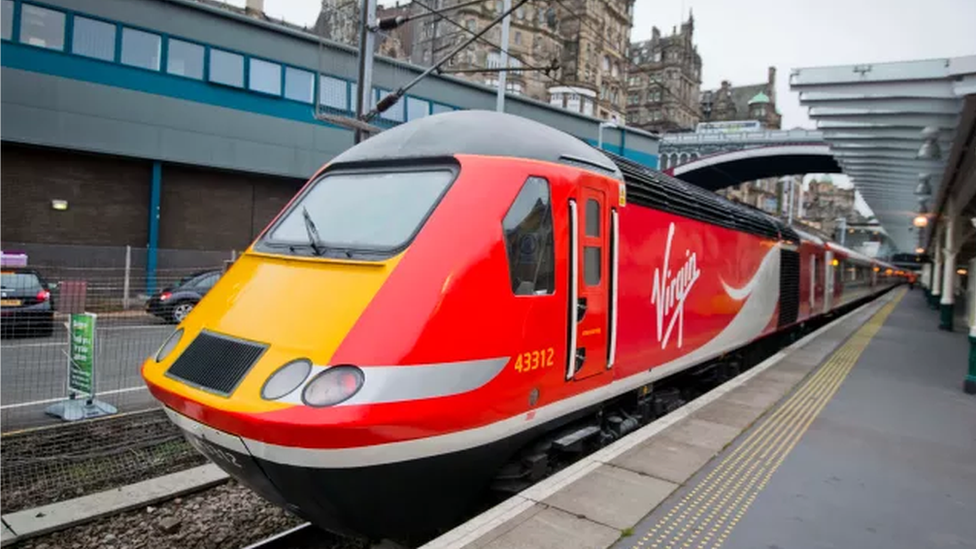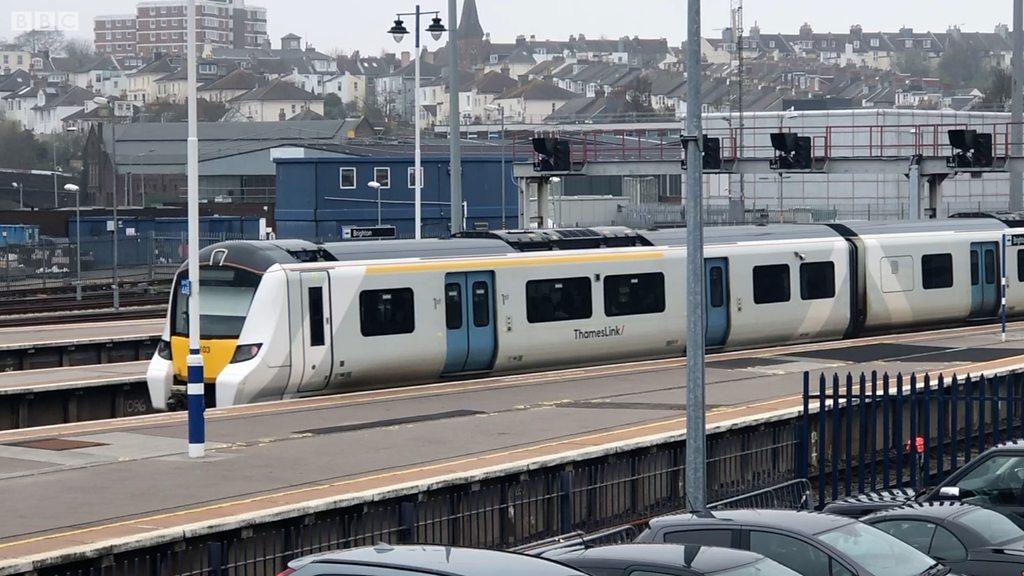Rail passengers suffer 'misery', say MPs
- Published
- comments

The government's management of two of the UK's biggest rail franchises has been "completely inadequate", a report by MPs claims.
The Public Accounts Committee said that a "catalogue of failures" by the Department for Transport, Network Rail and Govia Thameslink had caused "misery" for passengers.
It said UK passengers are paying for a "broken" rail franchising model.
However, the DfT said the "imbalanced" report made "inaccurate claims".
Meg Hillier, chair of the Public Accounts Committee, said: "The operation of the Thameslink, Southern and Great Northern franchise has been a multi-faceted shambles causing untold misery for passengers.
"Meanwhile, the East Coast franchise has failed for a third time because of wildly inaccurate passenger growth forecasts.
She said: "In both cases the government appears to have seen its task as simply to contract out the service, with wholly inadequate consideration given to passengers' best interests and behaviour."

Transport Secretary Chris Grayling
The Thameslink, Southern and Great Northern is the government's largest passenger rail franchise, operating trains in the South East.
Govia Thameslink began running the franchise in September 2014. Between July 2015 and March 2017, 146,000 trains were cancelled and more were delayed than on any other franchise.
Southern services have suffered major disruption over the past two years from strikes called by rail unions including the RMT.
In awarding the franchise, the Department for Transport "overlooked the poor condition of the infrastructure of the rail network", the Public Accounts Committee said.
It was also "ambivalent about the risk of industrial action and neglected to engage constructively with rail unions".
East Coast woes
The committee also criticised the East Coast franchise, which was due to be run by Stagecoach and Virgin Trains until 2023.
But in February, Transport Secretary Chris Grayling said the rail franchise would need new arrangements "within a very small number of months and no more" after Stagecoach found it couldn't make payments.

The committee said the government had "failed to learn the lessons from previous failures of the franchise, and has again allowed the operator to promise more than it could deliver".
It added that "passenger growth forecasts were wildly wrong" leading to inaccurate forecasts about how much money Virgin Trains East Coast would make.
'Improved dramatically'
However, the Department for Transport said the Public Accounts Committee had produced "an imbalanced report that fails to grasp the complexity of the situation".
A DfT spokesman said that Southern disruption had been "unacceptable... but services have improved dramatically".
He said: "Our franchising model already puts passengers and taxpayers first and has doubled the number of passengers using trains since privatisation reversed decades of decline and underinvestment under British Rail."
A spokesman for Govia Thameslink said its Southern services were now "a third more reliable compared to 2016 when the effect of industrial action was at its worst".
Stagecoach and Virgin Trains said in a joint statement: "We have met or exceeded all of our contractual commitments on the East Coast and have never lost sight of our focus on customers."
They added they were progressing with an £140m investment programme.
Network Rail said it had increased its involvement with franchise planning.
Mark Carne, Network Rail chief executive, said: "The PAC and I are in agreement that priorities and incentives of Network Rail and franchise operators need to be aligned."
"We continue to work with government and industry partners to bring track and train together to deliver a better railway for a better Britain," Mr Carne added.
- Published16 April 2018

- Published6 February 2018
